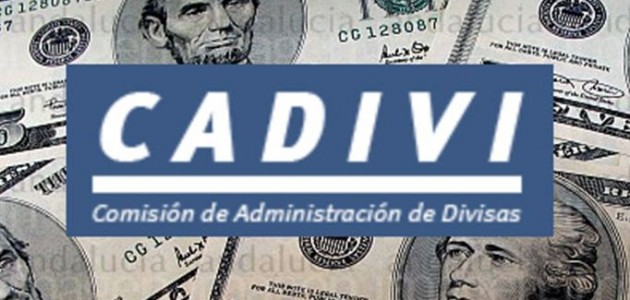
José Simón Calzadilla and José Antonio España, leaders of Democratic Unity Roundtable (MUD), accompanied by the economist José Guerra, requested on 4 December 2013 the Supreme Tribunal of Justice to order Cadivi «to publish with the urgency of the case and in a peremptory term, the list of companies to which foreign exchange has been approved in 2013».
The answer to the request arrived on 17 July 2014, in a presentation by Delgado Rosales. Instead of referring to the substance of the case, the Constitutional Chamber’s Justice simply rejected the request based on formal elements, arguing that Calzadilla, España and Guerra «lack the legitimacy to file this lawsuit for undefined interests».
Corruption in Cadivi was recognized by the government itself, to the extent that President Nicolás Maduro decided to eliminate that agency in January 2014. In May 2013, the former president of the Central Bank of Venezuela, Edmée Betancourt, acknowledged the deviations from the exchange control.
«What was given in foreign currency the last year was considerable, but there is also a considerable amount of foreign currency that was taken to briefcase companies», recognized Betancourt, that measured the embezzlement between USD$ 15 and 20 billion .
Subsequently, in August 2014, the former minister of planning Jorge Giordani described Cadivi as a «source of corruption» and days later the former minister of electricity Héctor Navarro wrote a letter in which he branded «traitors» those who have stolen the foreign currency «that the hospitals require today, or [are] necessary for the production and to satisfy the people’s needs».
«I am going to publish the complete list because we are going to start an audit process of up to the last dollar that was delivered, at least this last year,» promised Maduro in November 2013. At that time, he emphasized that Cadivi had delivered «more than USD$ 51 billion».
Leaning against the words of the head of state, Calzadilla, España and Guerra went to the Constitutional Chamber seeking to shed light on Cadivi’s opacity. However, Justice Delgado Rosales preferred to keep that secret under seven keys.
(…) it is noticed that the present lawsuit for undefined interest was initiated by the citizens (…), acting in their own name and invoking the indivisible subjective rights that they share with the rest of the inhabitants of the Bolivarian Republic of Venezuela that see their quality of life deteriorated, due to the over-invoicing that exists in the imports made by a large number of companies receiving foreign currency from the Commission for the Administration of Foreign Currency (CADIVI)».